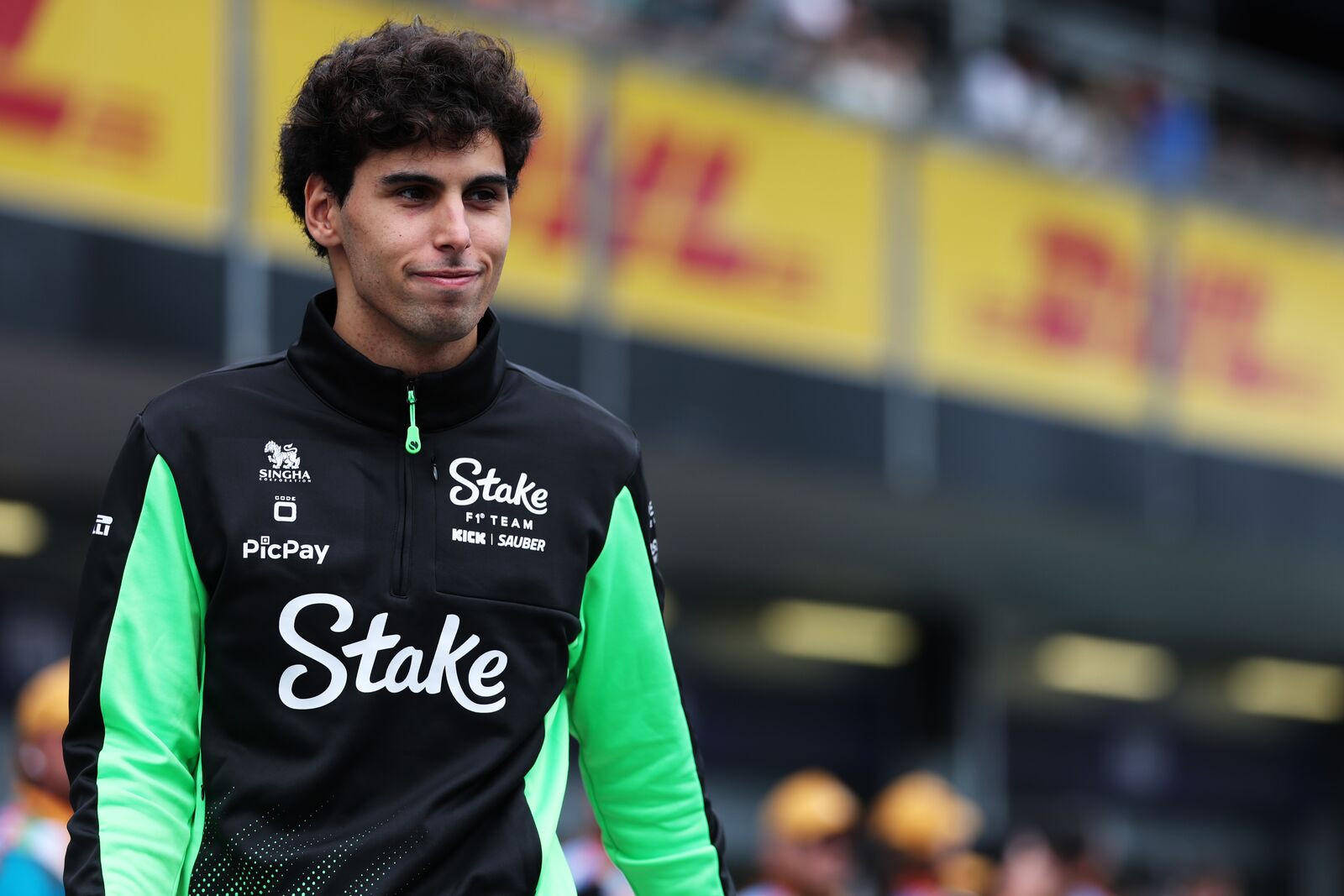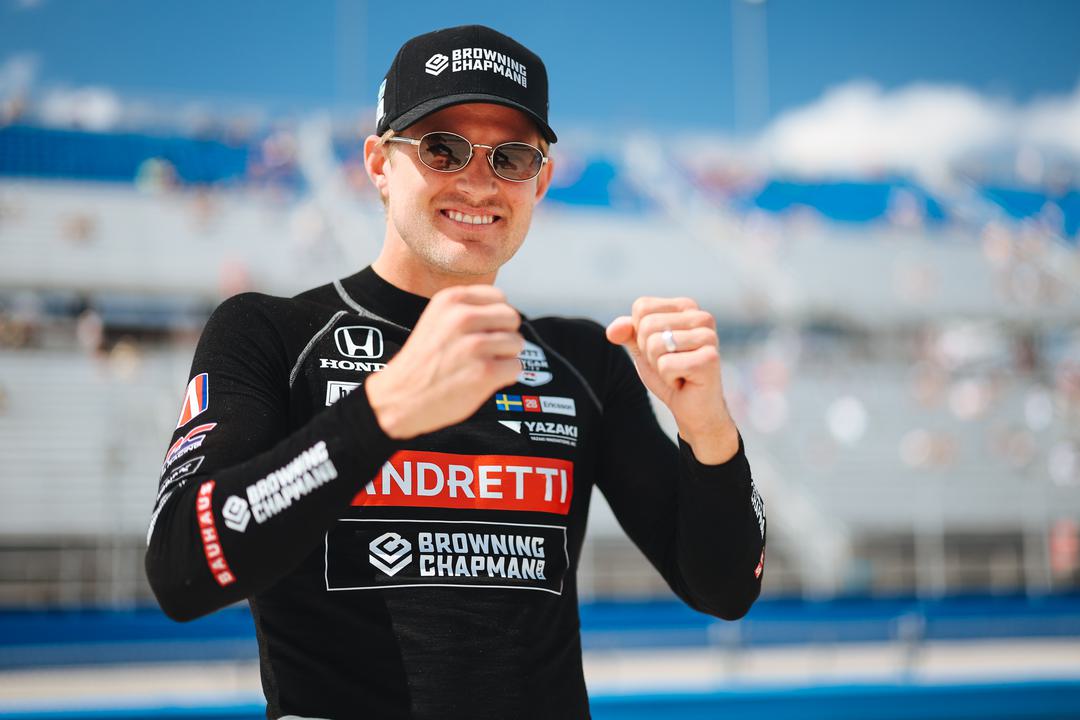In recent weeks, F1 CEO Stefano Domenicali revealed potential changes to the race weekend format aimed at enhancing fan engagement. One notable proposal includes increasing the number of Sprint Races from six to twelve by 2027. Ahead of the 2025 Azerbaijan GP, Sauber F1 Driver Gabriel Bortoleto shared his thoughts on the idea of doubling the number of sprint events. He spoke candidly about the added challenges this format poses—particularly for rookie drivers still adapting to the demands of Formula 1.
Bortoleto on Sprint Race expansion: “12 might be the limit”
While Gabriel Bortoleto appreciates the current Formula 1 weekend format for the preparation time it offers, he acknowledges the added entertainment value that more sprint races could bring for fans.
“Look, I didn’t stop to think about it,” Bortoleto said when asked about the proposal to double the number of Sprint Race weekends. “I’m used to the current format; I believe it’s not bad. I like that you have FP1, 2, and 3 to develop, to test things in the car, and to fine-tune things.”
He continued: “That’s what I find fascinating about Formula 1—how you can go into the details and fine-tune everything. When you have a Sprint weekend, there’s less time, and you need to do things quickly. Sometimes you don’t maximise everything in time. But I believe it’s nice for the entertainment of the fans, and for the weekend overall, since you have more racing and more meaningful sessions.”
However, Bortoleto also expressed caution about expanding the sprint format too far, suggesting there’s a natural limit.
“I’m not so sure I would go beyond 12 at some point,” he added. “I think that’s already a hard limit.”
Bortoleto warns of challenges Sprint format poses at Singapore
Formula 1 will host sprint races at six venues during the 2026 season: Shanghai, Miami, Montréal, Silverstone, Zandvoort, and Singapore.
Singapore’s unique schedule is expected to pose an added challenge during its sprint weekend in the 2026 F1 season. With the only practice session held during the day, while both qualifying and the race take place at night, drivers must contend with drastically different conditions—making car setup particularly tricky.
Bortoleto, who will race on the Marina Bay Street Circuit for the first time this season, emphasised the importance of having multiple practice sessions at a venue as complex and physically demanding as Singapore.
“But I think my situation is a bit different, right, because it’s going to be my first time there, so it’s always going to be important,” he said, referring to the value of having three full practice sessions to properly prepare.
While Bortoleto will have three practice sessions to prepare this year, the 2026 rookies will not be so fortunate. When told that Singapore will host a sprint race in 2026, Bortoleto expressed surprise before underlining the difficulty rookies may face under that format.
“It’s going to be a sprint?” he asked. After receiving confirmation, he added: “They [the rookies] may have a problem. I’m not a rookie next year, but definitely—it’s a problem. You go to Singapore, daytime, not ideal.”
Increased Sprint Races could make life tougher for future rookies
With Formula 1 planning to hold sprint races at half of the calendar’s events by 2027, Sauber driver Gabriel Bortoleto considers himself fortunate to have entered the sport before the format becomes more common.
“That’s one of the things. I think I’ve been lucky to get to Formula 1 at this moment—there are Sprints, but not a lot of them yet,” he said. “But for the future rookies, I think having Sprints, only one FP, it’s not going to be easy.”
Bortoleto believes the rise in sprint weekends—where drivers have only one practice session before competitive action begins—will create a serious challenge for young drivers learning new circuits under pressure.
However, it’s not just rookie preparation that could be affected. The mandatory four rookie FP1 sessions each team must complete during the season will also become harder to accommodate, with fewer full race weekends on the calendar.
“Yeah, it’s difficult. But it’s something mandatory, right, so they need to do it, and it’s the same for everyone, so everyone will have the same problem.”
The Brazilian also raised a broader concern: that the shift toward more sprint events could influence teams’ willingness to invest in rookie drivers.
“The problem I would say would be that teams will probably think a bit more before hiring rookies, because they know they have less time to adapt to Sprint events. That’s what I think is going to be more of a thing.”
Bortoleto expects Zandvoort Sprint to be “one of the toughest weekends”
Looking ahead, Sauber driver Gabriel Bortoleto was asked about his thoughts on the sprint events in Singapore and Zandvoort, two circuits known for their rather tricky nature. While the Brazilian has yet to race on the streets of Singapore and refrained from commenting, he highlighted Zandvoort as one of the most demanding venues on the calendar.
According to Bortoleto, the Dutch circuit will present a major challenge under the sprint format, describing it as a weekend where drivers must be “spot on” due to the limited preparation time.
“Well, I think it’s going to be interesting because, again, I think the weekend that is the Sprint weekend is always quite aggressive. You know, on Friday, you’re already putting everything you have, all the engine deployments, all the car performance you have, while on normal weekends, you take things a bit slowly, and you only put things really in FP3 and in Quali.”
“So, I believe it’s going to be interesting, especially in these tracks. I cannot say [anything] about Singapore because I’ve not been there yet, but Zandvoort is definitely one of the tough weekends, that only one FP makes things very complicated there.”
“You need to be spot on in that type of track.”





